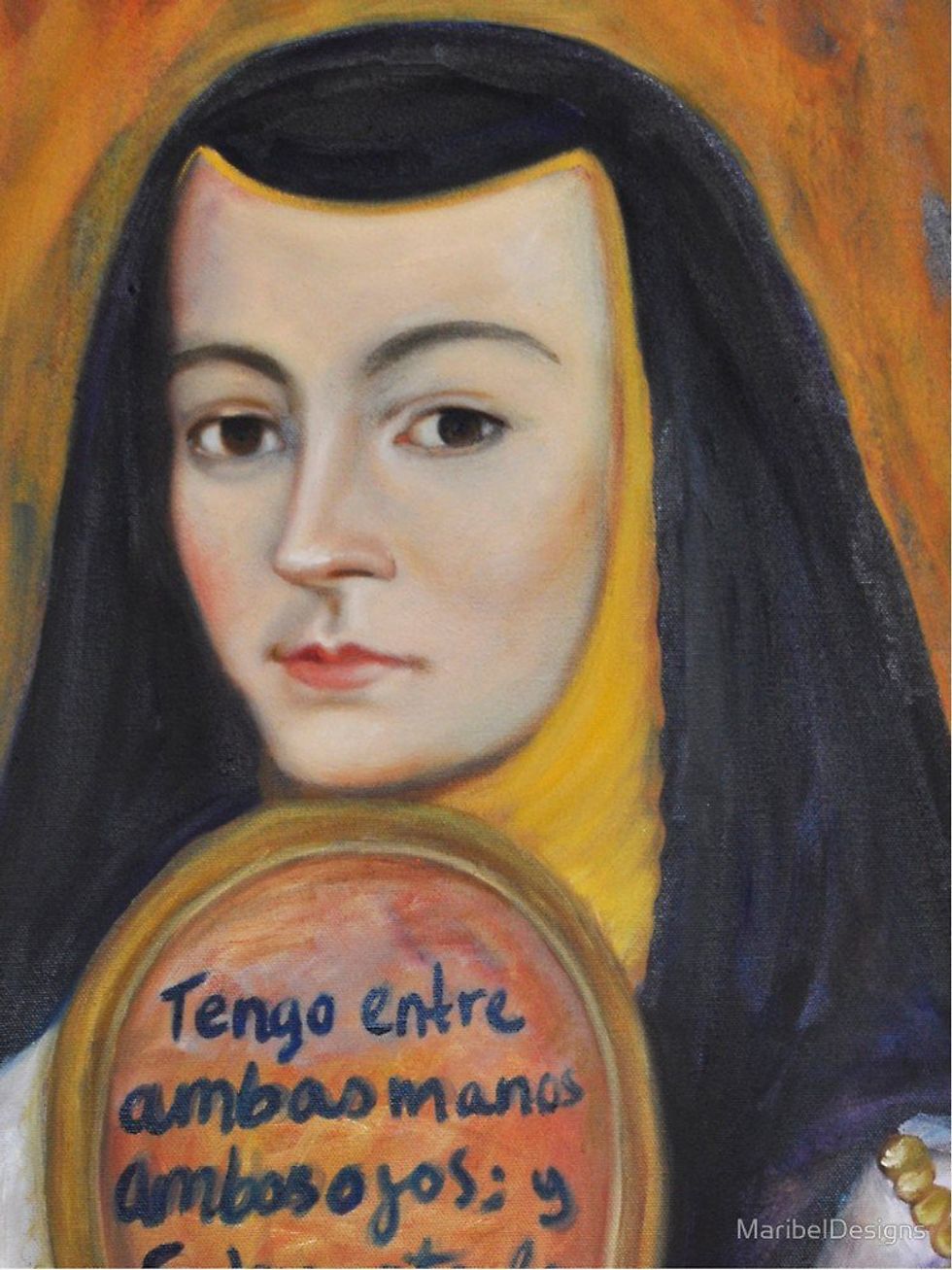The 1600's weren't exactly the best time to be a woman almost anywhere in the world. In Mexico, women were expected to be obedient to their fathers, and eventually to their husbands. Pop out a couple of kids while keeping the house clean and your mouth shut and you were golden. But from an early age Sor Juana (Meaning 'Sister Juana' in Spanish) decided that the domestic life was not for her. So in 1667 she made the decision to become a nun, self proclaiming that she chose so in order to have time to study and cultivate her writing skills. She resided in the Convent of San Geronimo in Mexico City for the rest of her life, where she collected a strikingly large library for a woman of the time, and began publishing her own poetry, often which advocated for women's rights by damning the societal values of the time.
Sor Juana’s work caught the attention of church officials and political leaders alike. Her work was highly controversial, so much so that it might be considered as such in modern times. In a poem titled “Redondilla 92” Sor Juana calls out the inconsistency of men who seek pleasure in women, but regard women who seek pleasure as filthy, and she does it with style and intelligence. To quote some of my favorite stanzas from the poem:
“O foolish men who accuse
women with so little cause,
not seeing you are the reason
for the very thing you blame:
for if with unequaled longing
you solicit their disdain,
why wish them to behave well
when you urge them on to evil?” (Sor Juana 1-8)
“You think highly of no woman,
no matter how modest: if she
rejects you she is ungrateful,
and if she accepts, unchaste.” (Sor Juana 29-32)
From these lines, Sor Juana’s feminist message is exceptionally clear, and her themes carry on to other poems, such as “Redondilla 87”, in which Sor Juana eloquently describes the beauty and grace of a woman named Feliciana. The poem itself is so complimentary and erotic that many have interpreted it as a sapphic love poem to Feliciana, which pushed the boundaries of women's sexuality. Though she gained a loyal following and was regarded in some circles as a genius, Sor Juana was a nun in 17th century Mexico, so it is not hard to imagine the backlash her work received both from society and the church.
The church was so threatened by Sor Juana’s intelligence and poetry that the Bishop of Puebla, don Manuel Fernandez de Santa Cruz, wrote her a letter under the guise of being a fellow nun named “Sor Filotea” urging Sor Juana to cease her writing and studies. The argument made by don Manuel was that male scholars were intimidated by Sor Juana’s impeccable skills, and that for her own reputation and safety, Sor Juana should stop writing, as women were not supposed to be “public” during the 17th century. Don Manuel’s letter also uses the church as an argument to why Sor Juana should stop writing, stating “God does not want letters that give rise to presumption in woman” (don Manuel 145).
Sor Juana, seeing through the guise of “Sor Filotea”, wrote a letter back to don Manuel titled “Response of the Poet: To the Very Eminent Sor Filotea de la Cruz.” In the letter, Sor Juana refuted the argument that God did not want her to write because he would not condemn the gaining of knowledge in any seeking soul. She also defended the right of all women to study, famously stating “One can perfectly well philosophize while cooking supper” (Sor Juana 185).
Sor Juana’s stunning poetry and brave refutation to the church led her to be known as the first feminist author of the New World, though she does not get the recognition that her male counter-parts of the time do. If I had not taken an American Literature class taught by a professor dedicated to showcasing diverse authors, I might not have ever had the privilege of reading Sor Juana’s work. Every time I read one of her redondillas I am stunned by her progressive world-view and the bravery it took for her to publish such controversial work during the 17th century. Sor Juana’s poetry laid the foundation for future women authors, and her work will not be forgotten by those who are so inspired by her message.




















